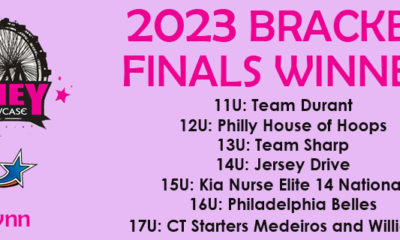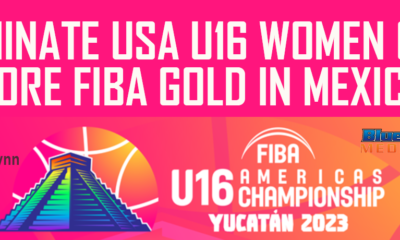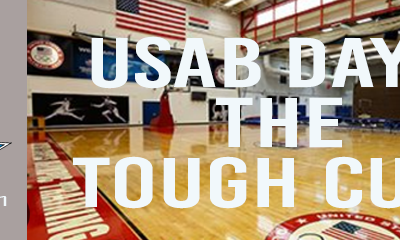
WASHINGTON, D.C.– Marcus Smart wasn’t supposed to be here. Oklahoma State’s 6-4, 220-pound point guard was supposed to be getting measured for a new suit to wear to the green room for the NBA draft Thursday at the Barclays Center in Brooklyn. Smart had a lottery pick season as a freshman, averaging 15.4 points, 5.8 rebounds and 4.2 assists for the Big 12 Cowboys, who finished 24-9, won the Puerto Rico Tip-off and beat Kansas at Allen Field House for the first time since 1990. Smart was selected national Freshman of the Year and was expected to be the first guard taken in the draft, ahead of red shirt freshman Ben McElmore of Kansas. Most likely, he could have gone second overall by the Orlando Magic. But he never made it down the aisle, passing on a slotted top three contract that could have guaranteed him at least $7.29 million over the next two years because he couldn’t get the bitter taste of that 65-53 NCAA first round loss to Oregon out of his mouth and didn’t want to leave his college teammates on a sour note. The NBA’s loss has turned into an unexpected gain for USA basketball. Smart, the early front runner for the national 2014 Player of the Year was a late addition to the U19 team that will play in the World championships that start June. 27 in Prague.
“I probably won’t even get a chance to watch the draft because we will be in the Czech Republic,” he said. “But I’m pretty sure I’ll hear about it. Ever since I made my decision to come back, everyone in campus has been asking me about it. That’s the No. 1 question? What happened? Why did you pass on the draft and go back to college. They watch that commercial on the draft on TV and come up to me and say, ‘Man, that could have been you on there.”
Smart spoke with his family about the biggest decision in his young life. He cried. He prayed a lot. It was a hard decision for an 18-year-old kid, seeing all that money thrown in front of him and turning it down. In the end, the humble kid from Flower Mound, Tex. who escaped to suburban Dallas from the drugs and killing that almost took his life at age 12 before his family moved out of the inner city projects of Lancaster, Tex. made a unique decision in a one and done era to stay in college for another year because he wanted another chance to make a run at the brass ring in the NCAA tournament.
“Most kids leave for the NBA because of the money,” he said. “Today, everything is about the money. It tends to define people in today’s society, but I’m not going to let it define me. “Don’t get me wrong. You need money. The more money, the more power. But money is the devil of all evil.”
The last elite player to spurn the draft was Spurs All pro power forward Tim Duncan, who passed twice in the ’90’s and stayed at Wake Forest for four years, but that was a generation the gold rush started. Duncan still went No. 1. Forget about the fact the last three great college point guards– Derrick Rose, John Wall and Kyrie Irving– all took the express lane to the NBA when they were penciled in as No. 1 picks overall. By waiting another year, there is some risk involved. But Smart deserves be lauded not criticized for having the courage of his convictions. After Smart’s decision, he heard all the cynics suggest he may have made a mistake because this is a weak draft when compared to next season and he could be leaving money on the table.
“That’s crazy,” he said. “It’s almost like a slap in the face, saying I’m not good enough to play other those other guys. I look at it as a challenge.”
When Smart goes to the league, he wants to have mastered a position he never played in high school.
“I’ve been working on my ball handling,” Smart admitted. “I’m 6-4, 220, going against guys who are 5-10, 6-0 and have the speed and quickness of a cheetah.”
Smart is also working on his shooting. As a freshman, he shot just 40 percent and just 29 percent from three point range, a point of emphasis in the international game.
“We’re not going to be a great three point shooting team,” Team USA coach Billy Donovan said. “Last year, in the 18’s, I think we shot 18 percent. But where we won was we turned people over, we offensive rebounded and we got out in transition and we forced turnovers. We’re going to go against teams that have been together for a few months and they’re going to be very cohesive on the offensive end of the floor. And the only thing we’ve got to understand is it’s not so much if we’re going to make threes we got to understand how to stop it.”
The aggressive, chiseled Smart may not have a complete game yet, but he is a perfect fit for this team. He is a natural leader and the toughest competitor on this USA team who gets along with his teammates and constantly invites them up to his room to play video games. Smart has quickly set the tone in the early intrasquad scrimmages by diving on the floor for loose balls, constantly driving to the goal and defending multiple positions. He made up for the fact his shot does not always fall by constantly making his teammates better by setting screens, making the extra pass, being active on the offensive glass and playing the type of lock down defense usually reserved for NBA players.
Smart was openly recruited for the U19 team by men’s national team director Sean Ford, who developed a good relationship with him when Smart played for the U18 team that won gold at the FIBA Americas qualifying tournament last year in Venezuela. At first, Smart, who suffered a severe injury to his shooting wrist, was reluctant. He had not even shot a basketball until the end of May and was afraid he wouldn’t be ready for the international competition in time. But the coaches were willing to wait on him because they realized Smart could be a game changer for a U19 team that may not be able to match the South Americans or Europeans with their deep shooting touch but can gain an competitive advantage by playing Billy Donovan’s style, pushing the ball up the court and defending all over the floor because he is relentless offensively and such a great, physical on the ball defender.
“It’s very time-consuming, especially if you make it,” Smart told Sporting News. “I left home on Friday, June 14, and won’t be back home until July 8. But I had to stop and think: This is a blessing most guys in my situation would die for. That’s the goal: to represent our country with our talent. We’ve got guys fighting wars for our country; this is just our way of fighting a war for our country, to go over and try to bring home a gold medal. We can go over there and make history.”
Smart knows what it’s like to grow up in a war zone. In a poignant story published by USA Today, Smart talked about an incident that occurred in Lancaster when he was 12 years old and trying desperately to cope with the fact his older brother Todd, who seemed destined to be an NBA when he played for Lancaster, Tex. High, had just lost its life to cancer at age 33. Smart was filled with rage. One night, he and some of his friends filled their pockets with rocks and began chucking them at innocent by passers. Then they made a mistake that almost cost them their lives. They knocked a man in a black hooded sweat shirt off his bike. The man got up and began chasing after them.
Smart did not know it at the time but the man was a member of the Bloods street gang. The man got as close as 15 feet when he let loose a volley of four shots that missed Smart, but scared him straight. Smart and his family has always had a knack for surviving hard times. His mother Camellia, 58, who undergoes kidney dialysis three times a week, is the real hero of the family who has taken its share of hits. Todd underwent an 18 year battle with cancer that wracked his body. Another brother Michael became a member of the Bloods street gang, lured in by the promises of easy money, drugs, big cars and wide screen TV sets. He wound up being hospitalized for cocaine abuse and almost died.
At age 10, Marcus looked like he was headed down the same road, stealing candy, food and soda from stores and constantly bullying his classmates in school. He was involved in an average of three fights a week, many of them volatile and one, in which he slammed another kid’s head into concentrate, resulted in him going to alternative school for 30 days. His mother put him in anger management classes and he and the family moved into a three bedroom rancher in Flower Mound, a Dallas suburb rented to them at cost by family friend Phil Forte, where he began to see a different side of life.
Smart’s game and his new personality flourished in his new environment. He developed into the Texas Gatorade Player of the Year and was selected to play in the McDonald’s All America game en route to this moment. He has gone through a life altering experience and come out on the other side.
Mike Flynn is owner and operator of Blue Star Basketball and U.S. Junior Nationals. He is a National Evaluator and publishes the Blue Star Report which ranks the top 100 high school girls basketball players in the nation. He also serves as Secretary of the Middle Atlantic District AAU, National Chair for AAU Lacrosse, Consultant to Gatorade for girls basketball, member of the McDonald's All–American selection committee, & Consultant for Nike Global Basketball.

Latest Articles
-


Christopher Lawlor
/ 1 day agoSELECTION SATURDAY: USA Basketball U18 Women’s Team is named for AmeriCup tipping on June 17 in Colombia
COLORADO SPRINGS, Colo. – A dozen of the most talented women’s basketball players from...
-
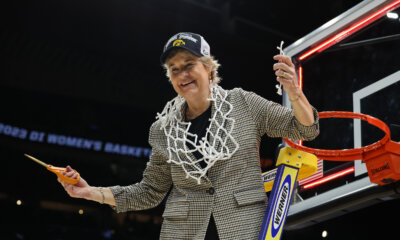

Christopher Lawlor
/ 7 days agoBREAKING: Lisa Bluder steps down as Iowa women’s head coach after leading Hawkeyes to back-to-back Final Fours; Jan Jensen inherits position
IOWA CITY, Iowa – In a shock to some, Iowa women’s head coach Lisa...
-
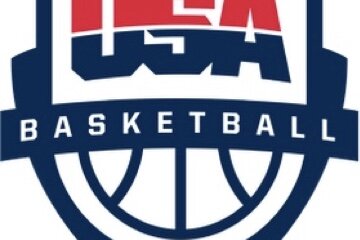

Christopher Lawlor
/ 1 week agoTwenty-Six Athletes Expected to Participate in USA Basketball Women’s U18 National Team Trials that begin on May 15
COLORADO SPRINGS, Colo. — USA Basketball announced 26 athletes expected to participate in the...
-
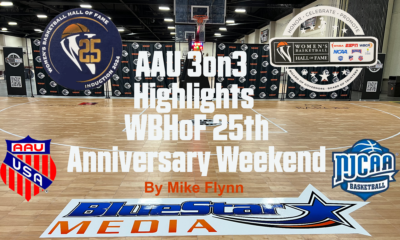

Basketball
/ 2 weeks agoAAU 3on3 Highlights WBHoF 25th Anniversary Weekend
KNOXVILLE – The 25th anniversary weekend celebration of the Women’s Basketball Hall of Fame...
By Mike Flynn
